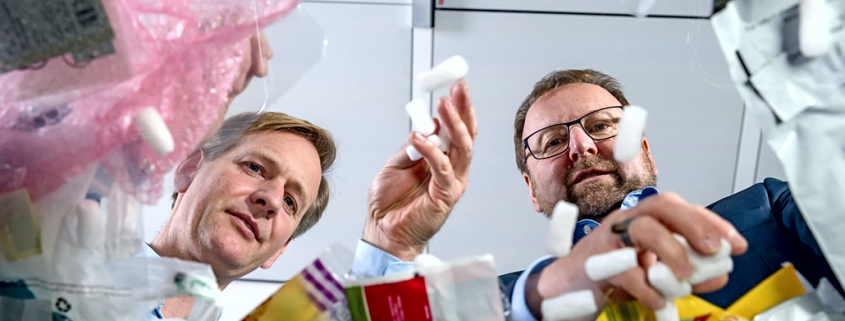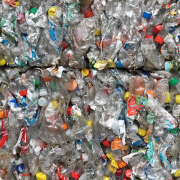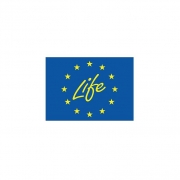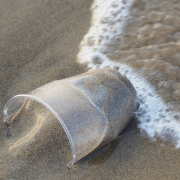Products with Chemically Recycled Plastics
The German chemical concern BASF has for the first-time manufactured products based on chemically recycled plastic waste, the company informed some weeks ago.
According to the information, BASF wants to make a significant contribution in reducing the amount of plastic waste. “With our ChemCycling project, we are using plastic waste as a resource. In this way, we create value for the environment, society and the economy. We have joined forces with partners throughout the value chain to establish a working circular model,” Dr. Martin Brudermüller, Chairman of the Board of Executive Directors and Chief Technology Officer (CTO) of BASF, was quoted. As reported, the chemical concern is already developing pilot products, including mozzarella packaging, refrigerator components and insulation panels, with ten customers from various industries. “Manufacturing products that meet high quality and hygiene standards – which are specifically required for food packaging for example – is possible because the ChemCycling products supplied by BASF have exactly the same properties as products made from fossil resources.” This way of recycling offers opportunities for innovative business models for the chemical company and its customers, Stefan Gräter, head of the ChemCycling project, is convinced. As a next step, BASF intends to make the first products from the ChemCycling project commercially available.
At the beginning of the production chain, oil derived from plastic waste by an oiling process is fed into the Production Verbund. As an alternative, syngas made from plastic waste can also be used. The first batch of this oil was fed into the steam cracker at BASF’s site in Ludwigshafen in October. “The steam cracker is the starting point for Verbund production,” the company describes the process. “It breaks down or ‘cracks’ this raw material at temperatures of around 850 degrees Celsius. The primary outputs of the process are ethylene and propylene. These basic chemicals are used in the Verbund to make numerous chemical products. Under the mass balance approach, the share of recycled raw material can be mathematically allocated to the final certified product. Each customer can select the allocated percentage of recycled material.”
Technological and regulatory challenges
Both the market and society expect the industry to come up with constructive solutions to deal with plastic waste. Chemical recycling is a complement to other recycling and waste management processes. “We need a wide range of recovery options for plastic waste, since not every solution is suitable for each type of waste or possible for each product application. The first choice should always be the solution that performs best in a life cycle assessment,” explained Andreas Kicherer, sustainability expert at BASF.
However, technological and regulatory conditions have to be met before the project is market-ready, the company points out. “For one thing, the existing technologies to transform plastic waste into recycled raw materials such as pyrolysis oil or syngas must be further developed and adapted so that consistently high quality is assured. Furthermore, regional regulatory frameworks will considerably influence to what extent this approach can be established in each market. For example, it is essential that chemical recycling and the mass balance approach are recognized as contributing to the fulfillment of product and application-specific recycling targets.”
“Responsible handling of plastic waste is crucial”
Plastics offer many benefits in technical applications, medicine and everyday life and they are often a better alternative to other materials. According to the company, the challenge lies in responsibly managing post-consumer plastics. “Functioning waste management systems and responsible consumer behavior with regard to plastics are crucial to solving problems such as pollution from plastic litter. To this end, BASF is involved in various projects at the association level and internationally.
For example, the company is member of the World Plastics Council and participates in two programs of the Ellen MacArthur Foundation. Furthermore, BASF has implemented Operation Clean Sweep, an international initiative of the plastics industry to prevent the loss of plastic pellets, flakes and powder in the environment.”
Photo: BASF
GR 12019









